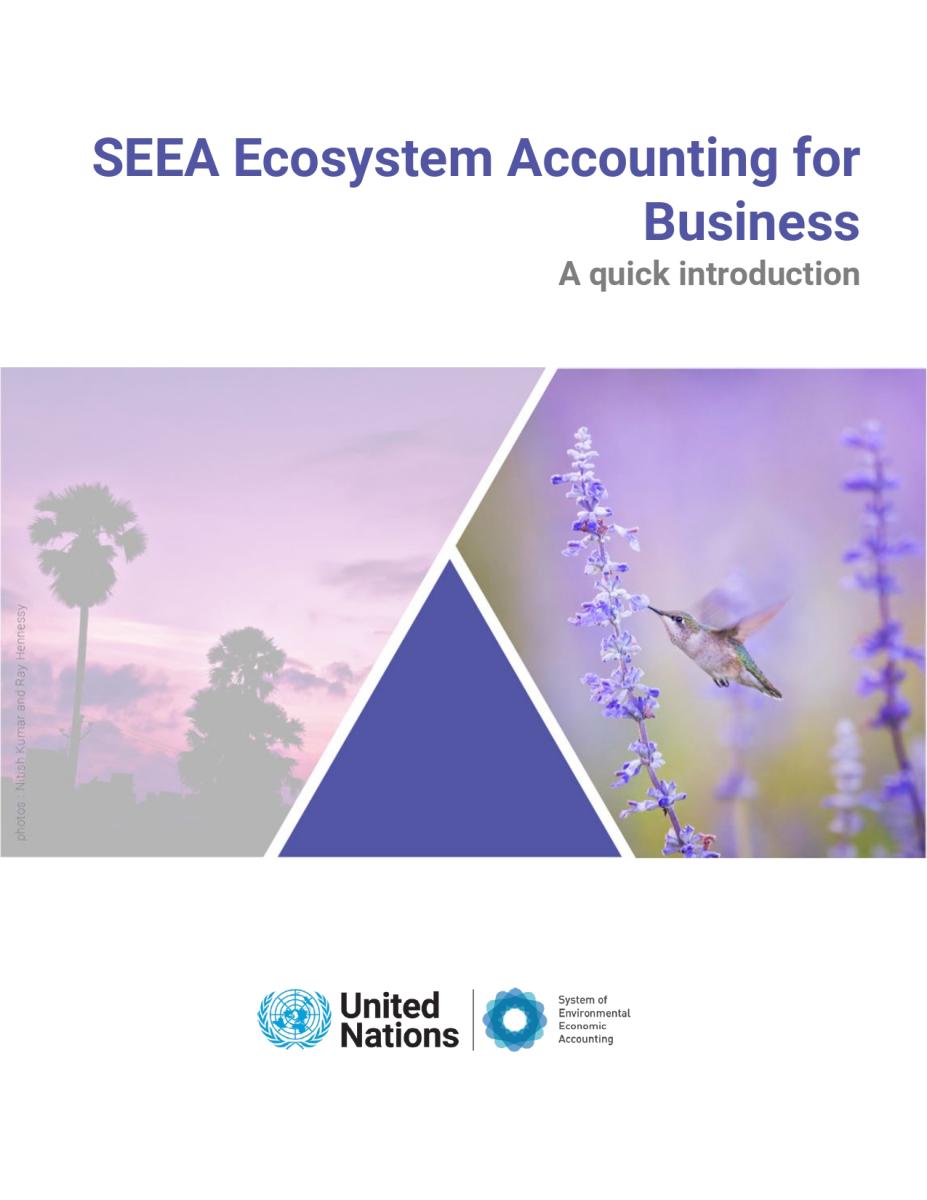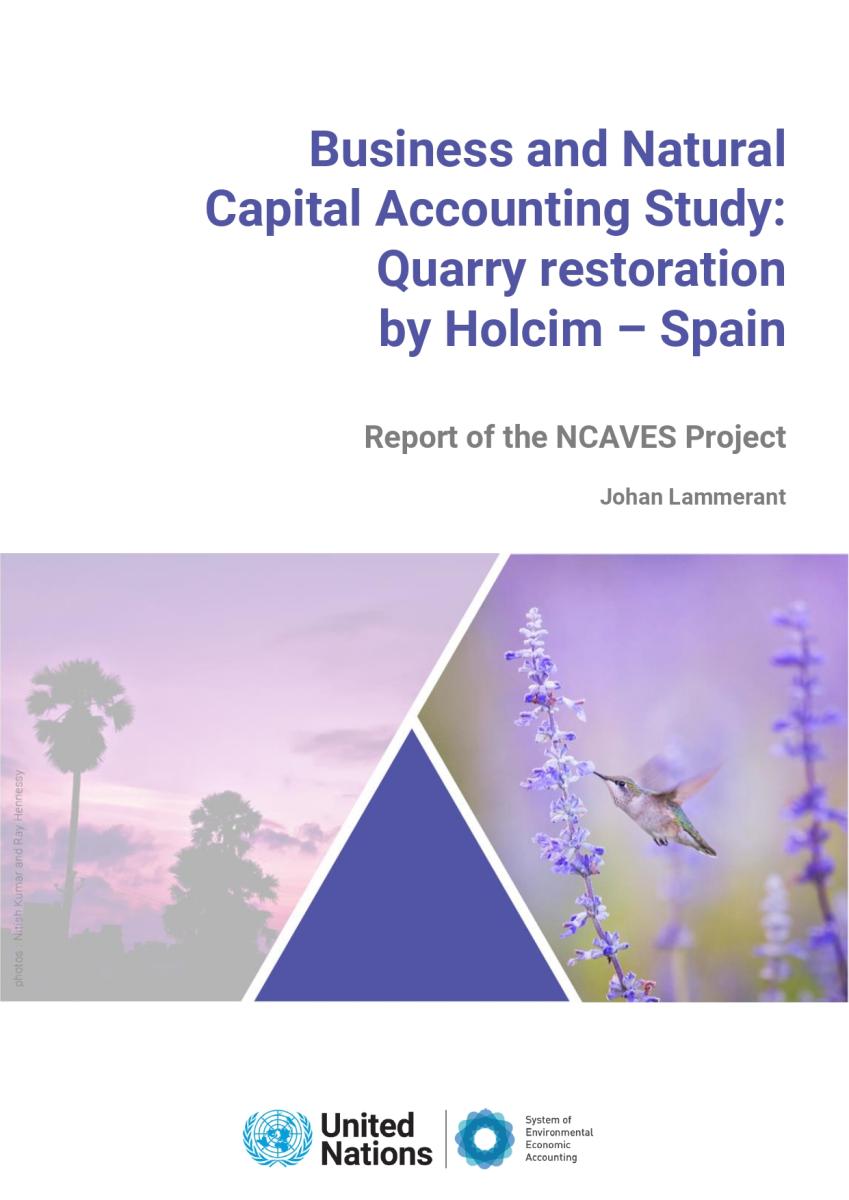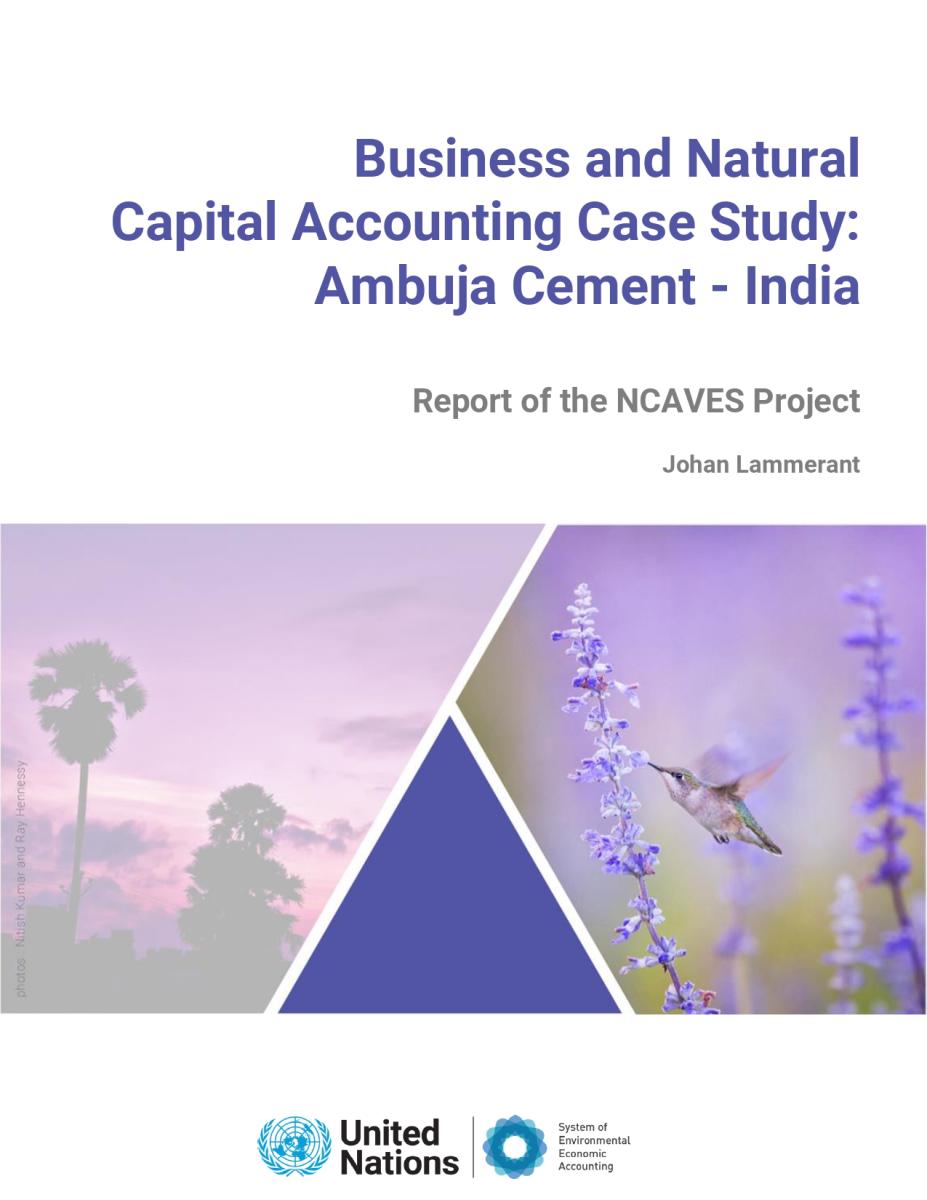Business Accounting
Overview
There is an increasing recognition within the private sector of the importance of including the environment in corporate reporting. Companies around the world are already compiling sustainability reports and integrating environmental information alongside financial information.
Building better linkages between business accounting and the SEEA would bring benefits to both businesses and governments. For example, better alignment in terms of methodologies, definitions and classifications would allow national statistical offices to more easily collect high-quality data from businesses. It would also allow for more efficient reporting by businesses to governments, as well as make it easier for businesses to use natural capital data provided by governments.
With this in mind, and building on previous work done as part of the workstream in business accounting under the EU-funded NCAVES project and the Combining Forces and Government Dialogue initiatives of the Capitals Coalition, the UN Committee of Experts on Environmental-Economic Accounting (UNCEEA) created a working group on the SEEA and business accounting. This working group aims to contribute to the harmonization of natural capital accounting by the public and private sectors and promote collaboration between the public and private sectors on natural capital data and accounting.
The Working Group and its current programme of work
The Working Group is currently chaired by the National Institute of Statistics and Geography of Mexico (INEGI), and members of the Working Group include experts from national statistical offices of the UNCEEA and select representatives from the business and standard-setting communities. The Working Group is aimed towards:
-
Building better linkages between private sector natural capital accounting and reporting standards with the SEEA:
-
Increased collaboration and awareness raising between statistical and business communities; and
-
Greater exchange and use of high quality, interoperable data on natural capital between businesses and national statistical offices.
The Working Group has agreed on a programme of work for 2022-2023, based on a roadmap towards alignment between SEEA and private sector natural capital accounting for the period between 2020-2025. The current programme of work includes:
-
A landscape assessment of current major initiatives and groups
-
Strengthened collaboration between the statistical community and the business and standard setting communities; and
-
Reviewing proposed standards and guidelines with the objective of building stronger connections between reporting standards and the SEEA.
Resources: Learn more
-
SEEA Ecosystem Accounting for Business - A quick introduction: This short document provides a primer for businesses on the SEEA Ecosystem Accounting (SEEA EA), highlighting elements that are useful in the context of corporate natural capital accounting. It also contains examples on how the SEEA EA relates to corporate natural capital accounting.
-
As part of the roadmap, UNSD recently conducted two pilot case studies with two companies in India and Spain, with a view to:
-
Assess alignment between the corporate sustainability monitoring approach for the environment with the SEEA EA;
-
Explore the availability of national and/or global SEEA data and the extent to which it could be of use for the purposes of business natural capital assessments and accounting; and
-
Identify opportunities for improving available national and/or global natural capital data, i.e. for making natural capital information compiled at the national or global scale more user friendly and tailored to the needs of the company.
-
The results of these pilot case studies can be found here: India and Spain
-
-
The Combining Forces initiative of the Capitals Coalition works to foster a greater mutual understanding of the different approaches to the assessment of natural capital on the part of businesses and government. In addition, the Government Dialogue project of the Capitals Coalition provides a platform for governments to explore and strengthen their role and interactions with the private sector in scaling up and mainstreaming the capitals approach.




